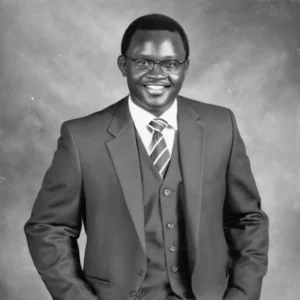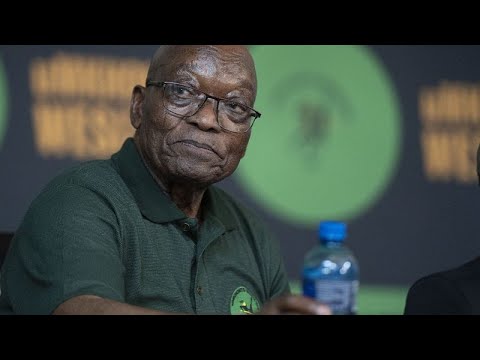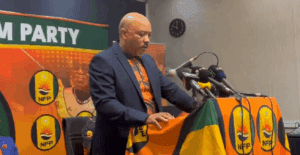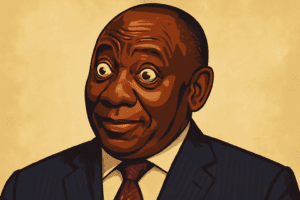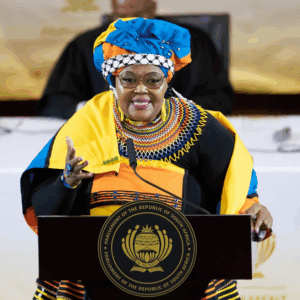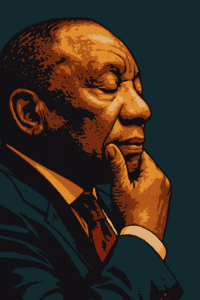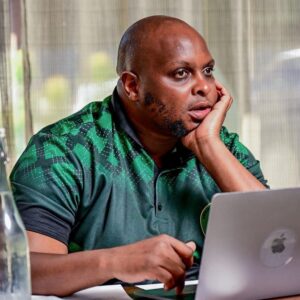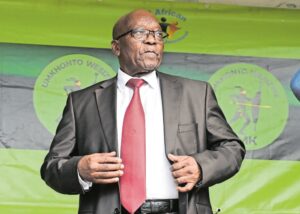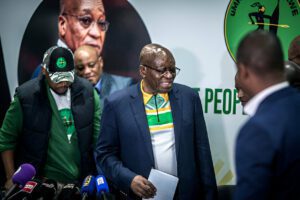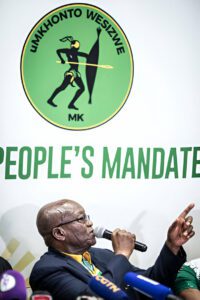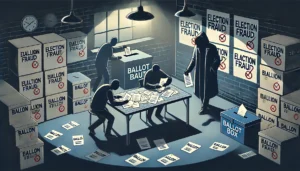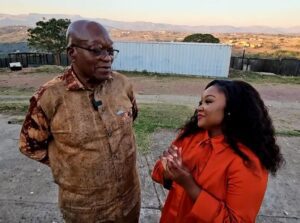In a significant display of support, former South African President Jacob Zuma held a rally in Soweto’s historic Orlando Stadium as part of his campaign for the upcoming general election on 29 May.
Zulu warriors, armed with traditional spears and shields, marched around the stadium while men in camouflage performed revolutionary songs. The rally also featured entertainment from some of South Africa’s renowned singers, including rapper Big Zulu, captivating the near-capacity crowd on Saturday.
A key highlight for Zuma’s supporters was the attendance of the disco icon Papa Penny. Having recently resigned from the African National Congress (ANC), Papa Penny has now joined Zuma’s new political party, uMkhonto weSizwe (Spear of the Nation).
“Unite Africa. Unite South Africa,”
Papa Penny declared in a brief speech, adding,
“Phansi [Down with] tribalism.”
Papa Penny’s presence, given his Tsonga heritage, was seen as a challenge to the notion that Zuma’s backing is primarily from his Zulu ethnic group, the largest in South Africa.
The main attraction, however, was the 82-year-old former president himself. The crowd erupted into chants of “Zuma, Zuma” as he entered the stadium, with his daughter, Duduzile Zuma-Sambudla, showing her reverence by kneeling and hugging him before he took his place on stage. Duduzile plays a significant role in the party, as she mentioned on The Shady PHodcast:
“My father is obviously the head, and I’m the neck.”
Choosing Soweto for the rally was strategic, as it is an ANC stronghold in Gauteng, South Africa’s economic hub. The township also holds deep political significance due to its pivotal role in the fight against apartheid, which ended with the ANC’s rise to power in 1994.
As the ANC faces the possibility of losing its majority, Zuma’s breakaway party, along with other opposition parties, poses a significant challenge. In response, ANC leader and President Cyril Ramaphosa has been actively campaigning in Zuma’s home province of KwaZulu-Natal.
Speaking in Mandeni, about 100km from Durban, Ramaphosa emphasized job creation and issued a warning to smaller parties like MK:
“These small parties, the MK-what-what don’t really know us. They only know about us from the media. They will know us on 29 May,”
he stated.
Ramaphosa’s ousting of Zuma in 2018 followed a power struggle, culminating in Zuma leaving the ANC and forming MK.
South Africa’s highest court has yet to decide if Zuma can serve as a lawmaker in the next parliament. The electoral commission argues that the constitution prohibits anyone sentenced to more than 12 months in prison from serving. Zuma was sentenced to 15 months in 2021 for contempt of court but was released after three months by Ramaphosa, a move seen as an attempt to calm Zuma’s supporters.
Senior MK official Visvin Reddy told the BBC they expected a court ruling soon. Even if unfavorable, MK plans to contest the election with Zuma’s face on the ballot.
“We’ll go to parliament, change the constitution, and bring him in,”
Reddy stated.
Despite aiming for a two-thirds majority, an Ipsos poll last month placed MK’s support at only 8%.
While many attended Zuma’s rally, a significant portion left before he finished his lengthy speech on political history. The Ipsos poll showed ANC support at 40%, down from 57% in 2019. However, the Social Research Foundation (SRF) reported a recent surge in ANC support, suggesting they might surpass 50%.
“According to our computer projection in the past four weeks, the ANC has been squeezing the life out of the opposition parties,”
SRF head Frans Cronje said.
Ramaphosa, campaigning in KwaZulu-Natal, urged supporters to vote in large numbers:
“If we win in KwaZulu-Natal and Gauteng, then we’ve won because those provinces have the most people,”
he remarked.
At Zuma’s rally, hostility towards Ramaphosa was evident, with chants of “Down with Ramaphosa”.
“Power must come back to the people,”
Zuma declared in Zulu, criticizing white colonialists and calling for the reclamation of land:
“People who came in ships and boats took over our country. They left us poor. We must take back the land our forefathers fought for.”
Supporters wearing T-shirts with images of Zuma and Russian President Vladimir Putin highlighted the BRICS alliance. MK’s manifesto includes controversial plans to nationalize mines and banks, aiming to fund free education for children from poor households.
Zuma also promised to expel undocumented migrants, adopting a populist stance to garner votes. The impact of these strategies will be revealed when South Africans head to the polls in ten days, in one of the most crucial elections since the end of apartheid.
